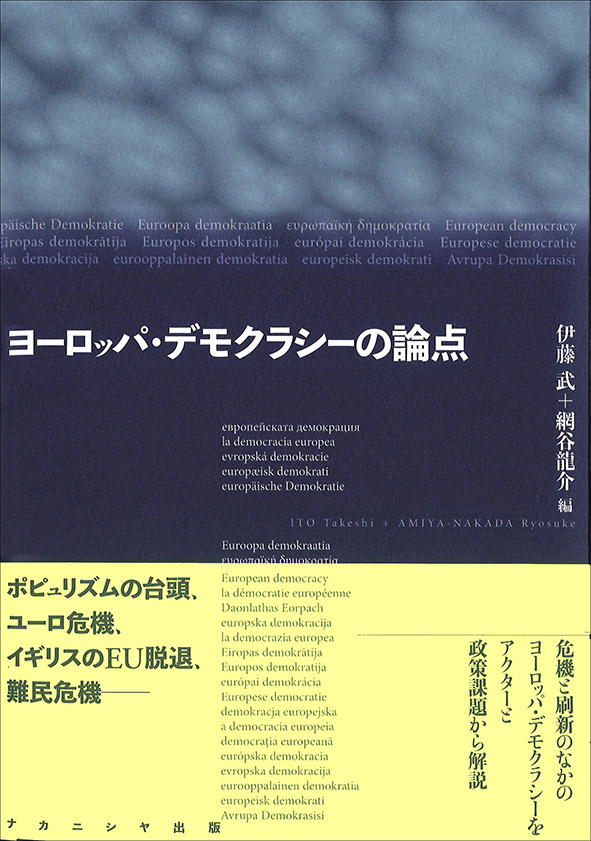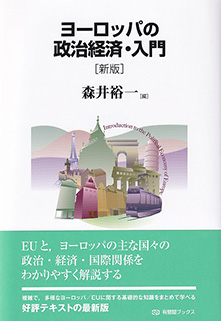
Title
Europe Democracy no Ronten (Actors and Issues in European Politics)
Size
276 pages, A5 format
Language
Japanese
Released
February 26, 2021
ISBN
9784779515385
Published by
NAKANISHIYA Shuppan
Book Info
See Book Availability at Library
Japanese Page
Modern Europe is a political laboratory with overlapping democratic crises and renewals.
European democracy has faced tough challenges in recent years, including the expanding power of populist parties, the economic blow of the Euro crisis, Brexit, and the COVID-19 pandemic. The phenomenon of democratic backsliding has been remarked upon, with Central and Eastern Europe in particular implementing restrictions on the political activities of opposition parties and on academic and journalistic freedoms.
At the same time, there have also been notable movements in Europe attempting to reform democracy in various ways. The large number of young people joining in various protests, such as demonstrations to protect the environment, is astounding. Administration by experts aiming to overcome the crisis (technocrats), and even populism when viewed from a different perspective, could be seen as a means of searching for new styles of politics.
European democracy is not a model that should be imitated, as was once idealized during the modernization of Japan. Rather, it is increasingly interesting as a laboratory to understand the transformation of democracy occurring on a global scale.
This book was published as a textbook for undergraduate to master’s students to explain the transformation of democracy in contemporary Europe. While many traditional texts on European politics treat political mechanisms by country, this book provides a new perspective by explaining the politics of topics that cross national boundaries.
Part 1, which constitutes the first half of the book, focuses on the actors on the stage of European democracy. In Europe, political parties are still important players. However, the names of political parties differ from country to country, which makes comparison difficult. Thus, this book summarizes the main types of political parties (by party family in comparative politics). Starting with radical right and radical left parties, which are attracting attention with the emergence of left and right populist parties, the book discusses conservatism and democratic socialism, which shaped mainstream parties in postwar democracy, and the political cleavages that form the background to the changing structure of party politics.
Part 2 explains issues that are attracting attention in contemporary Europe. The Euro crisis, banking union, nationalism, regionalism, separatism, social investment and welfare states, immigration and integration policies, and border control in the EU are discussed as prominent challenges in an environment with progressing cross-border integration such as the EU’s administrative organizations and bureaucracy, which are of great interest from the perspective of responses to the pandemic, followed by the judicial system and the constitutional court, which occasionally intervene in politics to promote reform.
The prologue and afterword touch upon the relationship with research trends in comparative politics and introduce associated issues for postgraduates seeking more in-depth research.
This book aims to provide an auxiliary line of analysis for understanding European politics from the perspective of comparative politics while maintaining the ease of understanding of a textbook. I hope that the book will help you discover the appeal of such an endeavor.
(Written by ITO Takeshi, Professor, Graduate School of Arts and Sciences / 2021)



 Find a book
Find a book




